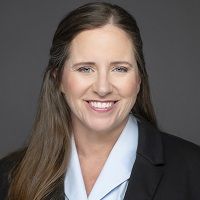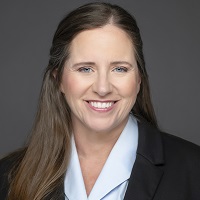Should Your Financial Advisor Get Involved in Family Conflicts?
As an objective third party, your financial advisor could offer insight into financial issues to lessen conflict, but they’re not a mediator.


Profit and prosper with the best of Kiplinger's advice on investing, taxes, retirement, personal finance and much more. Delivered daily. Enter your email in the box and click Sign Me Up.
You are now subscribed
Your newsletter sign-up was successful
Want to add more newsletters?

Delivered daily
Kiplinger Today
Profit and prosper with the best of Kiplinger's advice on investing, taxes, retirement, personal finance and much more delivered daily. Smart money moves start here.

Sent five days a week
Kiplinger A Step Ahead
Get practical help to make better financial decisions in your everyday life, from spending to savings on top deals.

Delivered daily
Kiplinger Closing Bell
Get today's biggest financial and investing headlines delivered to your inbox every day the U.S. stock market is open.

Sent twice a week
Kiplinger Adviser Intel
Financial pros across the country share best practices and fresh tactics to preserve and grow your wealth.

Delivered weekly
Kiplinger Tax Tips
Trim your federal and state tax bills with practical tax-planning and tax-cutting strategies.

Sent twice a week
Kiplinger Retirement Tips
Your twice-a-week guide to planning and enjoying a financially secure and richly rewarding retirement

Sent bimonthly.
Kiplinger Adviser Angle
Insights for advisers, wealth managers and other financial professionals.

Sent twice a week
Kiplinger Investing Weekly
Your twice-a-week roundup of promising stocks, funds, companies and industries you should consider, ones you should avoid, and why.

Sent weekly for six weeks
Kiplinger Invest for Retirement
Your step-by-step six-part series on how to invest for retirement, from devising a successful strategy to exactly which investments to choose.
We all know a financial advisor will help you and your family plan for your financial future. But naturally, with families come emotions, and with emotions come complexities.
The undeniable reality is that every family has conflict at some point. When you think about your family’s estate plan, existing conflicts can significantly impact how you approach wealth transfer and the roles individuals play within the family enterprise.
Your financial advisor is not the family mediator, but they can be a partner to help you identify the roles, strengths and function of each family member — and having context about conflicts that may influence behaviors within the family can help. So, when is the right time to bring your financial advisor into the fold when family conflicts arise?
From just $107.88 $24.99 for Kiplinger Personal Finance
Become a smarter, better informed investor. Subscribe from just $107.88 $24.99, plus get up to 4 Special Issues

Sign up for Kiplinger’s Free Newsletters
Profit and prosper with the best of expert advice on investing, taxes, retirement, personal finance and more - straight to your e-mail.
Profit and prosper with the best of expert advice - straight to your e-mail.
Defining roles and responsibilities
When you think about your long-term estate plan, each family member should have a distinct role and set of responsibilities, no matter how big or small. These roles should speak to the individuals’ strengths and passions.
For example, if you own a family business and have three children, that doesn’t necessarily mean the business will pass on equally between the three. Perhaps one child has more of an entrepreneurial spirit, or another has a distaste for the business, and forcing them into a significant role may, in turn, increase conflict. Maybe two siblings do not get along, and there needs to be clear lanes of ownership so that they do not compete against each other.
You know your family best, and it’s important for you to share any important background with your financial advisor that can help inform how family members may contribute to the estate plan and participate in a successful wealth transfer. Your financial advisor can then serve as a trusted liaison and gather all members together to discuss these roles and how they contribute to the bigger picture and long-term goals of the family.
When families navigate conflict, the meetings aren’t always easy. But disagreement isn’t necessarily a bad thing, especially when it comes to finances; it shows that the family members are engaged.
Mitigating conflict
Again, your financial advisor is not a mediator. But when the family gathers together to discuss your estate plan, your financial advisor can play a critical role in mitigating conflict not only in the heat of the moment but also long term by ensuring that the conversation stays centralized around the family’s shared values.
Despite differences between family members, every family should have a written mission statement and an articulated set of shared values and beliefs. Families who are managing a more extensive wealth transfer should consider documenting their mission and values through a “family constitution,” which outlines the family’s core values, mission, vision and harder-hitting documents, including policies about how they will treat one another and what they own together.
This may feel very uncomfortable for some families to articulate. Some might find it unnecessary or over the top — you’re a family, so why would you need documents on how to interact with one another? The biggest driver of conflict is a lack of a decision-making process. And when there are significant assets at stake, a formalized system — what we call family governance — will help lay the foundation for clearer swim lanes, easier decision-making and quicker resolution of conflicts.
What family governance can look like
Your financial advisor can help you determine what family governance may look like for you. Some families may hold a family assembly or regular meetings during which family members learn and plan for the future. If you have a family business, setting up a working group can help propose policies on matters such as family employment, family communication and talent development.
They can also help you establish a process to evaluate the next generation of leadership for your family, assessing qualifications, skill sets and interests. There are many roles, big and small — shareholders, philanthropic leaders, wealth creators, wealth oversight, governance members, family council leaders and more. There should be a place for everyone wanting to participate in the family estate. With that said, your financial advisor should be aware of the interests, strengths and personalities at play so they can help identify the roles to meet each family member's expectations and to align with their desired level of involvement.
Your financial advisor’s role isn’t to break up fights or be there for you to vent to when a conflict arises. However, it’s undeniable that family matters can get emotional and sometimes tense, and it can make sense to include them, as a trusted partner, in the conversation when there are pressing issues that impact the family. As a third party, they can offer an impartial view that can facilitate finding a resolution vs letting conflicts simmer. With heightened awareness around ongoing sensitivities, your advisor can help you set up a framework where everyone feels like they have a seat at the table.
Morgan Stanley Smith Barney LLC (“Morgan Stanley”), its affiliates and Morgan Stanley Financial Advisors and Private Wealth Advisors do not provide tax or legal advice. Clients should consult their tax advisor for matters involving taxation and tax planning and their attorney for matters involving trust and estate planning, charitable giving, philanthropic planning and other legal matters. 3520533 04/2024
Related Content
- Is Your Financial Adviser Doing a Good Job for You?
- Want to Hire a Remote Financial Adviser? What to Consider
- Eight Times You Should Contact Your Financial Adviser
- Can I Hire a Financial Adviser to Manage My 401(k)?
- Should I Pay a Financial Adviser an Assets Under Management Fee?
Profit and prosper with the best of Kiplinger's advice on investing, taxes, retirement, personal finance and much more. Delivered daily. Enter your email in the box and click Sign Me Up.

Elizabeth Chand is a Family Office Resources Generalist for Morgan Stanley’s Family Office Resources. Elizabeth provides specialized expertise to Financial Advisors and their UHNW clients, educating and advising across a broad spectrum of family wealth management concerns, including customized asset allocation and portfolio construction, strategic estate and financial planning, philanthropy management, family governance, wealth education and lifestyle advisory.
-
 Nasdaq Leads a Rocky Risk-On Rally: Stock Market Today
Nasdaq Leads a Rocky Risk-On Rally: Stock Market TodayAnother worrying bout of late-session weakness couldn't take down the main equity indexes on Wednesday.
-
 Quiz: Do You Know How to Avoid the "Medigap Trap?"
Quiz: Do You Know How to Avoid the "Medigap Trap?"Quiz Test your basic knowledge of the "Medigap Trap" in our quick quiz.
-
 5 Top Tax-Efficient Mutual Funds for Smarter Investing
5 Top Tax-Efficient Mutual Funds for Smarter InvestingMutual funds are many things, but "tax-friendly" usually isn't one of them. These are the exceptions.
-
 Social Security Break-Even Math Is Helpful, But Don't Let It Dictate When You'll File
Social Security Break-Even Math Is Helpful, But Don't Let It Dictate When You'll FileYour Social Security break-even age tells you how long you'd need to live for delaying to pay off, but shouldn't be the sole basis for deciding when to claim.
-
 I'm an Opportunity Zone Pro: This Is How to Deliver Roth-Like Tax-Free Growth (Without Contribution Limits)
I'm an Opportunity Zone Pro: This Is How to Deliver Roth-Like Tax-Free Growth (Without Contribution Limits)Investors who combine Roth IRAs, the gold standard of tax-free savings, with qualified opportunity funds could enjoy decades of tax-free growth.
-
 One of the Most Powerful Wealth-Building Moves a Woman Can Make: A Midcareer Pivot
One of the Most Powerful Wealth-Building Moves a Woman Can Make: A Midcareer PivotIf it feels like you can't sustain what you're doing for the next 20 years, it's time for an honest look at what's draining you and what energizes you.
-
 I'm a Wealth Adviser Obsessed With Mahjong: Here Are 8 Ways It Can Teach Us How to Manage Our Money
I'm a Wealth Adviser Obsessed With Mahjong: Here Are 8 Ways It Can Teach Us How to Manage Our MoneyThis increasingly popular Chinese game can teach us not only how to help manage our money but also how important it is to connect with other people.
-
 Looking for a Financial Book That Won't Put Your Young Adult to Sleep? This One Makes 'Cents'
Looking for a Financial Book That Won't Put Your Young Adult to Sleep? This One Makes 'Cents'"Wealth Your Way" by Cosmo DeStefano offers a highly accessible guide for young adults and their parents on building wealth through simple, consistent habits.
-
 Global Uncertainty Has Investors Running Scared: This Is How Advisers Can Reassure Them
Global Uncertainty Has Investors Running Scared: This Is How Advisers Can Reassure ThemHow can advisers reassure clients nervous about their plans in an increasingly complex and rapidly changing world? This conversational framework provides the key.
-
 I'm a Real Estate Investing Pro: This Is How to Use 1031 Exchanges to Scale Up Your Real Estate Empire
I'm a Real Estate Investing Pro: This Is How to Use 1031 Exchanges to Scale Up Your Real Estate EmpireSmall rental properties can be excellent investments, but you can use 1031 exchanges to transition to commercial real estate for bigger wealth-building.
-
 Should You Jump on the Roth Conversion Bandwagon? A Financial Adviser Weighs In
Should You Jump on the Roth Conversion Bandwagon? A Financial Adviser Weighs InRoth conversions are all the rage, but what works well for one household can cause financial strain for another. This is what you should consider before moving ahead.